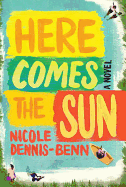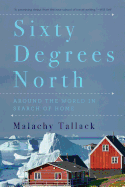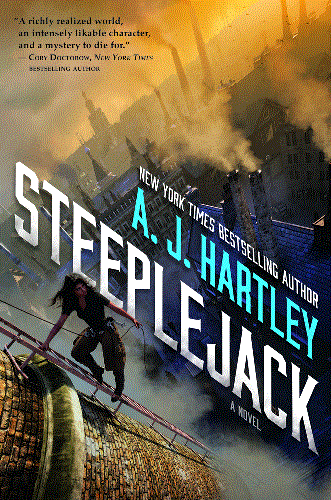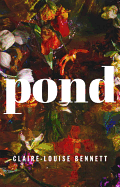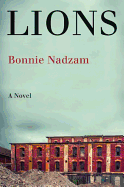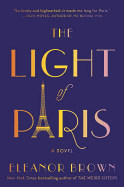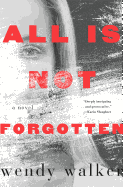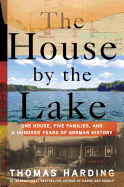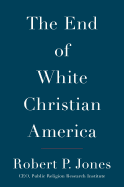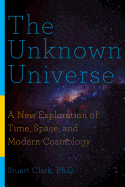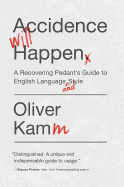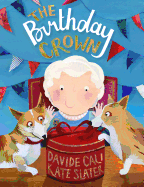Tuesday, July 12, 2016

My husband and I are taking a road trip east through Montana this summer, to the northeastern corner to Wolf Point. According to Wikipedia, it's a small city on the Fort Peck Indian Reservation, in the wide, shallow valley of the Missouri River, just below its confluence with Wolf Creek. That bare-bones description is enough to conjure, for me, the allure of the state that has produced some of the finest American writing. William Kittredge and Annick Smith's massive anthology The Last Best Place (University of Washington Press)--its title proclaiming the area's appeal--is a good introduction to Big Sky literature.
I read about Montana long before I visited the first time (when my friend Julie explained "bear bells," then tried to convince me they'd never be needed). First were the brilliant novel Winter in the Blood (Penguin Classics) and the elegant poetry of Riding the Earthboy 40 (Penguin Poets), both by the late James Welch, a founder of the Native American Renaissance. Then came A River Runs Through It and Other Stories (University of Chicago Press) from the "haunted by waters" Norman Maclean, with his famous opening: "In our family, there was no clear line between religion and fly fishing." The iconic memoir by Ivan Doig, This House of Sky: Landscapes of a Western Mind (Mariner Books), was required reading, and led me to his fine fiction--his posthumous novel, Last Bus to Wisdom, is a treasure (as was Ivan). 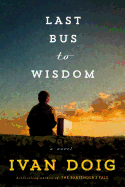
Then there's James Crumley's crazy detective story, The Last Good Kiss (Vintage Crime), with another excellent opening line: "When I finally caught up with Abraham Trahearne, he was drinking beer with an alcoholic bulldog named Fireball Roberts in a ramshackle joint just outside Sonoma, California, drinking the heart right out of a fine spring afternoon." And there's Rick Bass, Larry Watson (As Good As Gone), A.B. Guthrie, Jr., Mary Clearman Blew, Pete Fromm, Richard Hugo, Deirdre McNamer... such a clear sense of place. --Marilyn Dahl, editor, Shelf Awareness for Readers
Here Comes the Sun
by Nicole Dennis-Benn
In her debut novel, Here Comes the Sun, Nicole Dennis-Benn captures the lushness and devastation of Jamaica and its changing landscape. She brings both island and people to life with grace and beauty, complete with strong dichotomies: the verdant landscape and the rough edges of its poorest towns; its idyllic seas and dangerous tides; its thriving tourism and the ways that industry threatens the island way of life.
Margot works as the front desk manager of an upscale resort by day and hustles resort clients by night. Her goal is to make enough money to send her younger sister, Thandi, to a private school, where she will receive the education--and the promises that come with it--that were denied to Margot. Meanwhile, their mother, Dolores, sells trinkets to tourists in the marketplace, and their grandmother Merle mourns the flight of her brother to the States. But Thandi, hope of the family, destined to become a doctor and save them all from the difficulties of living as poor black women in Jamaica, dreams of becoming an artist with ever-lightening skin.
Steeped in the experiences of these and other women, Here Comes the Sun is a powerful reflection on femininity and sexuality in Jamaican culture. As the women are caught in a web of other peoples' expectations, and as they fight for their own versions of independence, Dennis-Benn's stunning, multi-layered novel explores the implications of race, reputation, class and money--and how they can push people to trade on today for the promise of a better tomorrow. --Kerry McHugh, blogger at Entomology of a Bookworm
Discover: Nicole Dennis-Benn brings the beauty and harshness of Jamaican life to light in this stunning debut novel.
Pond
by Claire-Louise Bennett
One can perhaps best hear the wheels clicking behind the voice of the unnamed coastal Ireland narrator of Claire-Louise Bennet's intriguing collection of stories in the opening to "Control Knobs": "When I first moved in here all three control knobs on the cooker were intact and working just fine. Three control knobs on a cooker doesn't sound like very many to most people because, nowadays, in addition to hardly anyone ever saying nowadays, very few people own what's known as a mini-kitchen, and those people who do are probably the same people who continue to unfurl the phrase nowadays."
Pond, in its quirky structure and language, calls to mind the Irish fathers of literary modernism Joyce and Beckett. But then it also echoes Woolf's Mrs. Dalloway, Carroll's Alice, Thoreau's Walden and, more contemporarily, Strout's Olive Kitteridge, as well as anything by Nicholson Baker.
Bennett's narrator is a funny, self-deprecating, observant, opinionated, earthy woman whose mind grasps every detailed string of her rural life and gives it a pull to reveal her curiosity and contented solitude. Nothing is missed: her neighbors, her garden and compost heap, a new bicycle, local cows and dogs, the mailbox. What a treasure, this woman!
In the short two-page concluding story, Bennett abruptly shifts to the third person, as if needing to collect herself and step back from such deep immersion into the soul of the narrator. After closing this collection, readers may also want to step back and absorb all that burbles along in Pond so enjoyably--even though the narrator elsewhere advises: "It's a devil to know what to take seriously." --Bruce Jacobs, founding partner, Watermark Books & Cafe, Wichita, Kan.
Discover: The unnamed narrator of Bennett's debut story collection is a perspicacious observer with disarming wit.
Lions
by Bonnie Nadzam
At the opening of Bonnie Nadzam's novel Lions, the small village of Lions, Colo., is on the verge of vanishing. So much so, in fact, that even the people whose families have been there for generations are starting to disappear. First John Walker, the enigmatic patriarch of a family of welders and pioneers, unexpectedly dies at the beginning of an exceptionally hot summer. Then everyone around him starts to slowly recede. Walker's son Gordon begins to take long, unannounced trips into the high plains, leaving his longtime girlfriend, Leigh, to second-guess her entire world. The local bar owner, Boyd, begins to wonder about his future in a town where his best customer seems to be losing his mind and the one mechanic in town ups and leaves for a city down south.
Lions is both a place and a feeling. To Nadzam (Lamb), the hot, high plains east of the Rocky Mountains feels like a summer day cooling down just after sunset and you're thinking about both your past and your future as if they are both too far away to grasp. In Lions, Colo., time has forsaken its people. To the few families left in town, the promise of the future came and went without anyone noticing and has left them unable to catch back up.
Lions is both beautiful and unsettling, its prose both sharp and panoramic. In the expansive western prairie, Nadzam has crafted a world where the future is long forgotten. --Josh Potter
Discover: Lions is an atmospheric and lyrical observation about family and longing in a place where family and longing are all that is left.
The Light of Paris
by Eleanor Brown
"Paris is always a good idea," Julia Ormond famously noted in the 1995 film version of Sabrina. For Margie Pearce, a shy, bookish debutante teetering dangerously close to spinsterhood in 1920s Washington, D.C., a trip to Paris comes at the right moment. After turning down a perfunctory and distinctly unappealing marriage proposal, Margie travels to Paris as chaperone to her willful young cousin, Evelyn. When Evelyn leaves the city with her bohemian friends and most of Margie's money, Margie defies her parents by deciding to stay in Paris alone and pursue her dream of becoming a writer. In her second novel, The Light of Paris, Eleanor Brown explores Margie's transformation and its far-reaching effect on her family, including her granddaughter Madeleine.
Brown (The Weird Sisters) begins her narrative in 1999, when Madeleine's frustration with her loveless marriage and unfulfilling life has reached the breaking point. During an impulsive visit to her childhood home, Madeleine unearths Margie's journals and letters from Paris. As she delves into this previously unknown facet of her grandmother's story, Madeleine wonders if she, too, can build a different life, one lived on her own terms instead of other people's.
Moving deftly between Madeleine's first-person voice and Margie's third-person narrative, Brown evokes the sensory images beloved by Francophiles: lush gardens, rich food and wine, elegant cafes buzzing with art and intellectual debate. But this isn't simply a retelling of the familiar American-in-Paris dream; it is a sensitive exploration of two women who feel trapped by the expectations of society and family. Très bien! --Katie Noah Gibson, blogger at Cakes, Tea and Dreams
Discover: An evocative tale of a woman trapped in a loveless marriage who reconsiders her life choices after discovering her grandmother's letters and journals from Paris.
Mystery & Thriller
All Is Not Forgotten
by Wendy Walker
Set in Fairview, Conn.--a small, affluent town complete with country club and BMW-lined streets--All Is Not Forgotten is, on its surface, about a teenager named Jenny Kramer who is brutally attacked at a local party. Following her rape, her parents opt to ease their daughter's pain by approving a controversial medical procedure designed to erase Jenny's memories of the attack. And the miracle treatment works: while Jenny is informed of the overall facts of her case, she recalls nothing of it herself.
In the months that follow, the consequences of this decision become more and more apparent to everyone. The police are left with no leads and little hope of identifying, and thereby finding, Jenny's attacker. She cannot remember the event specifically, and is left haunted by her past and unable to return to her former happy teenage self. Jenny's father, Tom, becomes obsessed with finding her attacker, while his wife, Charlotte, prefers to pretend that nothing out of the ordinary has happened.
All Is Not Forgotten offers readers a well-imagined and very human look at the lasting impact of tragedy. Its characters are flawed and all the more engaging because of it. Witnessing the ways they tell their stories to each other in the midst of all of this--and the way that Wendy Walker tells their stories to us as readers--cements Walker as an expert storyteller and All Is Not Forgotten as an excellent novel of psychological suspense. --Kerry McHugh, blogger at Entomology of a Bookworm
Discover: This psychological suspense novel will force readers to question what they think they know.
History
The House by the Lake: One House, Five Families, and a Hundred Years of German History
by Thomas Harding
In The House by the Lake: One House, Five Families, and a Hundred Years of German History, Thomas Harding (Hanns and Rudolf) tells the history of 20th-century Germany through a small vacation home, located on a lake near the outskirts of Berlin, and the five families who lived in it.
Harding is not an impartial observer. In 2013, he traveled to Germany to visit a lakeside house that had belonged to his family until the 1930s, when they fled to England after the Nazi rise to power. He had heard stories about the residence his entire life; his grandmother described it as her "soul place." Now it was an empty eyesore scheduled for demolition. The local architectural preservationists told him that if he didn't want the building to be knocked down, he would have to prove its cultural and historical significance.
The House by the Lake is the outcome of Harding's attempt to piece together the house's past and that of the people who have lived there. Thanks to the location and the nature of the families who occupied it, its history allows Harding to consider the scope of German history through the intimate details of individual lives. (The construction and demolition of the Berlin Wall, for instance, take on a new immediacy because the wall ran through the land that connected the home, located just inside East Germany, to the lake.) The result is a compelling new look at familiar territory. --Pamela Toler, blogging at History in the Margins
Discover: One small country house near Berlin is the setting for an incredible range of 20th-century German history.
Current Events & Issues
The End of White Christian America
by Robert P. Jones
The End of White Christian America by Robert P. Jones, founder of Public Religion Research Institute (PRRI), is a timely, insightful and important exploration of declining white evangelical and mainstream Protestant influence. Long the most dominant cultural force in the United States, and one that defined the country's identity, it now includes just 32% of the public. Jones argues that the most hotly debated cultural issues in contemporary life, including immigration, same-sex marriage and racism, can be understood only in the context of this powerful demographic shift.
Jones opens each chapter with telling examples, like the transformation of Robert Schuller's Crystal Cathedral from a humble community church to a sparkling aspirational space, through bankruptcy, to its new incarnation as part of the Roman Catholic Diocese of Orange County, offering masses in English, Spanish and Vietnamese. Moreover, Jones analyzes the underlying demographic changes, drawing on four decades of public polling data from the PRRI. He argues persuasively that the religiously unaffiliated add momentum to these shifts, as a growing group that may outnumber all Protestants combined by 2051. Acceptance of gay marriage and rejection of anti-gay Christian rhetoric are leading reasons young people are abandoning traditional religion, and religious affiliation is often connected to how some people define what it means to be American.
Jones writes that the wedge issues in the bitter culture wars of the last decades will fade as white Christian America gives way to newer cultural norms. While this shift is welcome, Jones reminds his readers that any assessment of this waning religious influence should acknowledge its many positive contributions alongside any critique of its excesses. --Jeanette Zwart, freelance writer and reviewer
Discover: A well-researched, wide-ranging analysis of the declining influence of white Christian America.
Science
The Unknown Universe: A New Exploration of Time, Space, and Modern Cosmology
by Stuart Clark
With the advancement of technology, scientists have been able to reexamine existing data and use new information to make better assessments of the universe's origins, the composition of the sun, the formation of planets and a host of other intriguing ideas related to space. Astrophysicist Stuart Clark's easily absorbed prose in The Unknown Universe places readers deep in the middle of exciting new models, ideas and analysis that are requiring scientists to rethink what they had thought they knew about outer space.
Thanks to a microwave image sent back to Earth by the Plank probe, which built the picture pixel by pixel over two and a half years, and was finally revealed in 2013, scientists were able to show the earliest origins of the universe. And that began the change in the way astronomers view the stars. Clark (Is There Life on Mars?) provides plenty of background history to help readers understand the evolution of astronomy, from the earliest stargazers using crude instruments to the modern use of deep-space traveling probes that send back images and data only modern supercomputers can process. Clark explains the existence of exoplanets; the way the sun generates sunspots, and how they influence the jet stream and weather patterns on earth; why light always travels at a constant speed; why black holes require a rethinking of the theory of gravity; the possible existence of dark matter and dark energy; and more. He demonstrates that we know a lot about the universe, but have much more to learn. --Lee E. Cart, freelance writer and book reviewer
Discover: An astrophysicist details recent discoveries in astronomy in readable, non-technical language.
Travel Literature
Sixty Degrees North: Around the World in Search of Home
by Malachy Tallack
Malachy Tallack comes to identify the northern Scottish archipelago of Shetland as home only after a long and troubled journey away and back again. In Sixty Degrees North: Around the World in Search of Home, Tallack grapples with the concept of belonging to a place, while traveling around the world on a single parallel. "For just as we inhabit the landscape, the landscape inhabits us, in thought, in myth and in memory." He opens with the evocatively titled chapter "Homegoing," and wraps up, naturally, with "Homecoming." The chapters in between might be characterized as home-seeking.
While largely concerned with interior musings, Tallack makes a remarkable survey of cultures, climates and histories along the way. Ongoing themes include ties to nature and to community; the tension between isolation and engagement; stasis, movement and exile. He examines Scandinavia's social and political systems, particularly in the Åland Islands, which belong officially to Finland but are politically independent and have a majority Swedish population. He touches on the science of climate change, the relative definition of "north" and the question of "denordification... as though by changing, by developing, by warming, the north can actually become less like itself."
An introverted, quietly likable but troubled narrator, Tallack experiences no momentous events in the course of his travels, and few conversations. Sixty Degrees North is not a book of action, but rather an extended meditation on longing and belonging, on personal ties to place and on the particular nature of a certain band of earth and sea. --Julia Jenkins, librarian and blogger at pagesofjulia
Discover: This broadly appealing travelogue combines carefully crafted writing with immersion in Northern lands and contemplation of the idea of home.
Reference & Writing
Accidence Will Happen: A Recovering Pedant's Guide to English Language and Style
by Oliver Kamm
Countless generations of writers, editors and diehard wordsmiths grew up learning that there were certain unassailable rules of English language that characterized proper writing, such as avoiding dangling participles and split infinitives, and knowing when to use who versus whom. Some of these pedants would cringe to think that textspeak and slang could ever be considered proper grammar. But to those bemoaning the fall of English in its purest form, rest assured that the language remains vibrant and strong, and continues to thrive.
Like most linguists who study the science of language form and function, London Times chief columnist, self-professed former pedant and unofficial English expert Oliver Kamm defends the honor of split infinitives and double negatives as being a natural part of speech. His case in point: English-language champion William Shakespeare, whose grammar choices should horrify pedants. Kamm charges that hardnosed grammarians like Strunk and White and Lynne Truss often miss the boat when it comes to usage; they decry the inclusion of modern idioms and regional variances, pointing to 18th-century English (a system devised to conform to Latin) as the only standard and refusing to acknowledge literary references that deviate from this custom. He suggests that their strict adherence to an outdated standard and disregard of English variants is akin to denying the existence of modern cultures. It is no accident that accidence (the aspect of grammar dealing with inflection, or change) has had a positively healthy influence on the English language.
"English is a river," writes Kamm. "There is nothing like a perfect state of the language--or of any language." --Nancy Powell, freelance writer and technical consultant
Discover: Oliver Kamm provides a spirited argument for why modern English and its regional variants enrich and strengthen the language.
Children's & Young Adult
Steeplejack
by A.J. Hartley
In his heart-poundingly suspenseful, elegantly crafted series debut, Steeplejack, A.J. Hartley (the Darwen Arkwright and Will Hawthorne series) introduces a tender and steely heroine in a racially tense, class-clashing world harking back to 19th-century South Africa.
Seventeen-year-old steeplejack Anglet "Ang" Sutonga--fixer of brick clock towers and factory stacks in the industrial city of Bar-Selehm--is, as usual, dangling precariously above the cobbled streets far below. She's unnerved, because the Beacon, a priceless luxorite stone that has burned brightly above the skyline for 80 years, is, impossibly, gone. Worse still, a steeplejack named Berrit has just plummeted to his death on his way up to help her. But when Ang spots his body in the alley, she also discovers he has an obvious knife wound. Was he... murdered? The scene is set, and Ang's sense of foreboding is contagious.
Ang is determined to solve Berrit's murder. At first no one else seems to care about her fellow brown-skinned "Lani street brat" whose "fall" was in the newspaper between "an advert for corsets and a piece about a garden party." But when the boy's death is linked to the theft of the Beacon, Ang is recruited by a local politician to investigate, and her sleuthing role becomes official. A city in crisis, breathtaking rooftop chases, harrowing assaults, blood oaths, love and loyalty, brutal betrayals and impressive detective work by the intelligent, intuitive Ang unfold in a fascinating, vividly described setting that includes smog and slums, gas lamps and opera houses, baboons and bushbabies. A political, multilayered mystery-thriller with a strong, impressively fierce heroine. --Karin Snelson, children's & YA editor, Shelf Awareness
Discover: In this suspenseful murder-mystery set in a fantastical 19th-century South Africa, a 17-year-old female steeplejack gets pulled into a political maelstrom.
The Birthday Crown
by Davide Cali, illus. by Kate Slater
The Birthday Crown was written in honor of Queen Elizabeth II's 90th birthday, but even without that very specific context, this vivacious, cleverly illustrated picture book is an absolute delight.
British illustrator Kate Slater (Eva of the Farm; The Little Red Hen) captures the "huge excitement" on the palace grounds with exquisite 3-D cut-paper collages of a commotion of horses, carts, soldiers, palace workers and gift-bearers. The rest of the book happens in a palace room, a paper theater set that Slater constructed, populated with cut-out figures, then photographed from different angles. It's brilliant! The Queen's horses have been prettified, her shoes are ready, her gown is beautiful, "But--but--we still need to find the right birthday crown!" A variety of designers fabricate special crown options for the big day. The royal gift shop makes a snow globe crown ("Brrr... it suddenly feels rather cold in here!" says the Queen.) The royal greengrocer makes a delicious fruit crown, the royal gardener makes a charming flower crown ("Very pretty. But it's making the royal corgis sneeze!") and the royal beekeepers make a hive crown, complete with live buzzing bees. The dogs and grandchildren get into the action, too, and giggles are guaranteed. In the end, it's not the most elaborate crown that wins the Queen's fancy, but the crown made with the most love.
Swiss-born Italian author Davide Cali (A Funny Thing Happened on the Way to School...) tells the tale with lively humor and a deliberately repetitive structure perfect for storytime. Warning: May inspire a flurry of creative crown-making. --Karin Snelson, children's & YA editor, Shelf Awareness
Discover: It's the Queen's birthday, and she must choose her birthday crown from a parade of gloriously outlandish options.


